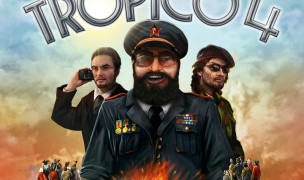 11 Terms
11 TermsHome > Terms > English (EN) > War on Poverty
War on Poverty
In 1962 Michael Harrington published The Other America, arguing that one-fifth of Americans lived in substandard housing, suffered from malnutrition and received inadequate medical care. Harrington’s shocking revelations influenced many in America, including Lyndon Johnson, a man of humble beginnings with whom the problem of poverty resonated deeply The sudden death of President John Kennedy in 1963 moved many in the government, first among them the new President Johnson, to fulfill the goals Kennedy had targeted, one of which was the creation of a War on Poverty.
The War on Poverty had its roots in the New Deal of the 1930s. In terms of enlarging the powers of the federal government, the two reform movements were equally ambitious. But unlike the 1930s, the early 1960s was an era of unprecedented prosperity in America, which emboldened Johnson and others all the more to believe that poverty could be erased from the American landscape.
At the same time, many researchers began to talk about a “culture of poverty” in America, arguing that poverty tended to strike certain groups more than others, and to be handed down through generations. That is, nonwhites, the elderly those with less education, and female-headed households were much more likely to be affected by poverty and to pass down this condition to future generations. How to break this cycle was a much more difficult question.
The ambitions of the War on Poverty included Medicare, a national health-insurance program initially created in 1964 for the elderly and then expanded to include recipients of welfare. In addition, the Elementary and Secondary Education Act of 1965 gave aid to underfunded public schools, while the Higher Education Act of the same year allocated funds for needy college and university students. Johnson’s administration also created the Department of Housing and Urban Development.
But the War on Poverty involved individuals at the grassroots level as well as the highest levels of the government. In this regard, Johnson’s vision was premised on the belief that the poor needed to be involved in the programs that were to affect them if those programs were to succeed. In this spirit, the Johnson administration created the Office of Economic Opportunity in 1964. First headed by R. Sargent Shriver, John Kennedy’s brother-in-law, the OEO administered a budget of $800 million to a variety of programs geared to community development and job training.
Some of the more notable programs of the War on Poverty included: legal services for the poor; Volunteers in Service to America (VISTA), a form of domestic Peace Corps, training the young as teachers to be sent to underprivileged school districts; the Job Corps, which attempted to train those who had dropped out of formal education; and Project Head Start, initiated to provide preschool education for poor children. Some of these programs, such as Head Start and Food Stamps, are still current, but for the most part the War on Poverty had a minimal impact. Many have argued that the programs fell victim to the Vietnam War’s voracious appetite for funding, while others have charged that the entire enterprise was little more than a superficial attempt to mend a system with deep structural problems.
- Part of Speech: noun
- Synonym(s):
- Blossary:
- Industry/Domain: Culture
- Category: American culture
- Company: Routledge
- Product:
- Acronym-Abbreviation:
Other Languages:
Member comments
Terms in the News
Billy Morgan
Sports; Snowboarding
The British snowboarder Billy Morgan has landed the sport’s first ever 1800 quadruple cork. The rider, who represented Great Britain in the 2014 Winter Olympics in Sochi, was in Livigno, Italy, when he achieved the man-oeuvre. It involves flipping four times, while body also spins with five complete rotations on a sideways or downward-facing axis. The trick ...
Marzieh Afkham
Broadcasting & receiving; News
Marzieh Afkham, who is the country’s first foreign ministry spokeswoman, will head a mission in east Asia, the state news agency reported. It is not clear to which country she will be posted as her appointment has yet to be announced officially. Afkham will only be the second female ambassador Iran has had. Under the last shah’s rule, Mehrangiz Dolatshahi, a ...
Weekly Packet
Language; Online services; Slang; Internet
Weekly Packet or "Paquete Semanal" as it is known in Cuba is a term used by Cubans to describe the information that is gathered from the internet outside of Cuba and saved onto hard drives to be transported into Cuba itself. Weekly Packets are then sold to Cuban's without internet access, allowing them to obtain information just days - and sometimes hours - after it ...
Asian Infrastructure Investment Bank (AIIB)
Banking; Investment banking
The Asian Infrastructure Investment Bank (AIIB) is an international financial institution established to address the need in Asia for infrastructure development. According to the Asian Development Bank, Asia needs $800 billion each year for roads, ports, power plants or other infrastructure projects before 2020. Originally proposed by China in 2013, a signing ...
Spartan
Online services; Internet
Spartan is the codename given to the new Microsoft Windows 10 browser that will replace Microsoft Windows Internet Explorer. The new browser will be built from the ground up and disregard any code from the IE platform. It has a new rendering engine that is built to be compatible with how the web is written today. The name Spartan is named after the ...
Featured Terms
Contributor
Featured blossaries
Browers Terms By Category
- Fuel cell(402)
- Capacitors(290)
- Motors(278)
- Generators(192)
- Circuit breakers(147)
- Power supplies(77)
Electrical equipment(1403) Terms
- Algorithms & data structures(1125)
- Cryptography(11)
Computer science(1136) Terms
- Capacitors(290)
- Resistors(152)
- Switches(102)
- LCD Panels(47)
- Power sources(7)
- Connectors(7)
Electronic components(619) Terms
- Economics(2399)
- International economics(1257)
- International trade(355)
- Forex(77)
- Ecommerce(21)
- Economic standardization(2)
Economy(4111) Terms
- General packaging(1147)
- Bag in box(76)




